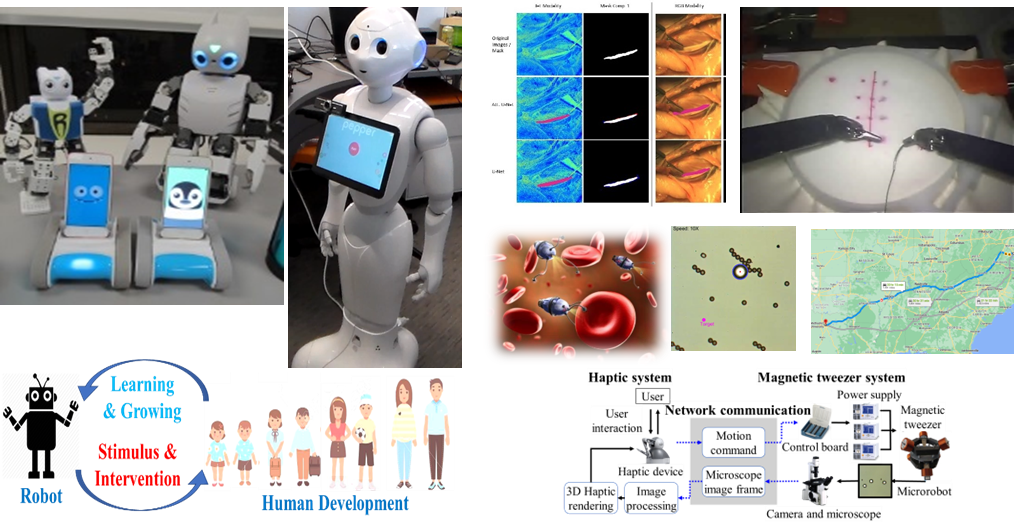The Assistive Robotics and Tele-Medicine (ART-Med) Lab is directed by Professor Chung Hyuk Park with a focus on developing humanized intelligence through learning human behaviors and knowledge. The main research areas of ARTMed lab are Assistive Robotics and Healthcare robotics, with specialization in (1) social robots for children with autism, (2) multi-modal perception and mutual learning in human-robot interaction (HRI), (3) digital health and artificial intelligence (AI), and (4) telemedical robotics. Through these research topics, Prof. Park and the members of ARTMed lab aim to have societal impact and increase quality of life through their intelligent robotic systems and advanced AI algorithms. ART-Med lab has been funded by NIH, NSF, CTSI-CN, KIAT, and GW OVPR, with doctoral and master’s students, several undergraduate researchers and research interns, among whom more than 60% are female students or students from under-represented groups. Companion courses (Introduction to Assistive Robotics, and Socially Assistive Robotics and Interactive Learning) are offered to provide hands-on learning. The collaborators of ART-Med lab are affiliated with the Johns Hopkins University, Georgia Institute of Technology, Virginia Tech., Kennedy Krieger Institute, Southern Methodist University, Rochester Institute of Technology, and Korea University. The long-term goal of research in ART-Med lab is to have real impact on healthcare and quality of life in our daily living through smart and interactive robotic assistance and specialized AI support.


